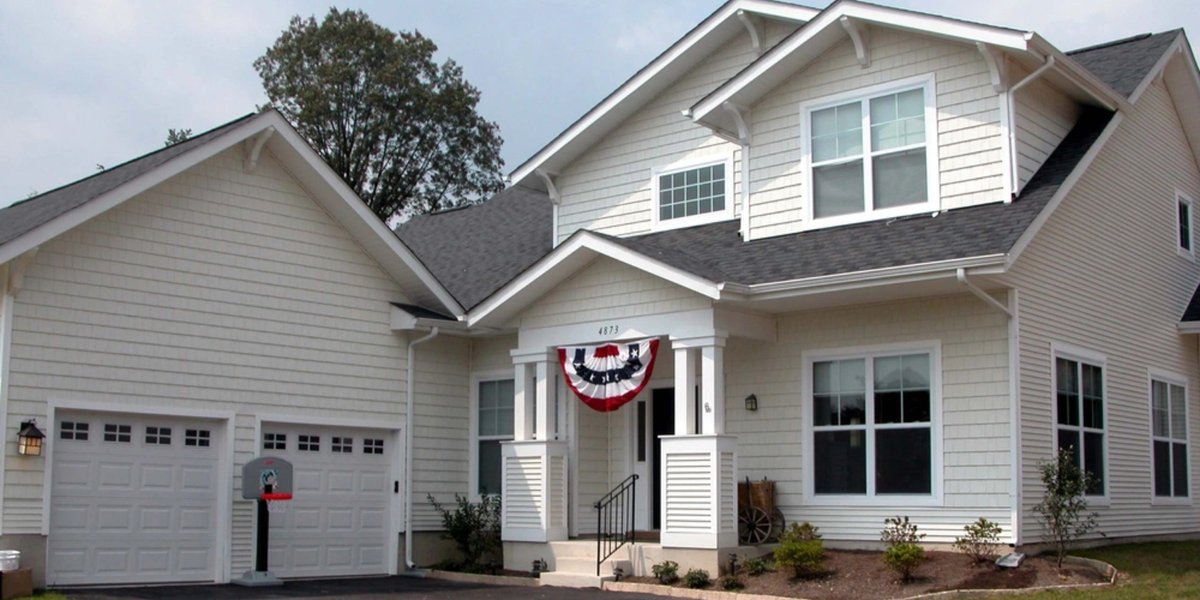MILITARY HOUSING FREEZES RENT AMID BAH PAYMENT RISKS

Your spouse deploys. Your kids ask if the lights will stay on. Payday arrives, and your account is empty.
That’s what some military families face as the shutdown delays Basic Allowance for Housing (BAH) payments, the monthly benefit supporting rent and utilities.
More than 60% of active-duty families rent their homes, and most depend on BAH to get by. When BAH stops, the impact touches every home on base and in surrounding communities.
“Housing providers across the country have an opportunity to step up during this time and help ensure that those who serve our nation aren’t penalized because of an interruption in pay,” said Philip J. Rizzo, CEO of Liberty Military Housing (LMH).
Military Housing Rent Freeze: Impact on Families
Instead of waiting for Washington to solve the problem, LMH took action. The company manages over 36,000 homes at 200 installations and announced a rent freeze for families affected by the shutdown. This means there will be no late fees, penalties, or collection efforts until BAH payments start again.
For many families, this was more than just financial help. It was a sign that they are seen and supported.
“We want to assure our residents that they will not incur any late fees or penalties due to non-payment as a result of not receiving their BAH,” Rizzo explained. “Rent will not be due to bring their account current until BAH allotments are reinstated and received.”
That promise covers 36,000 military families nationwide, including those at Camp Pendleton, Naval Base San Diego, and bases in Virginia, Texas, and Hawaii, managed by LMH. In contrast, other major privatized housing partners, such as Hunt, Lendlease, and Balfour Beatty, have not publicly announced similar rent-freeze policies, leaving approximately 165,000 additional families in uncertainty.
DoD Policy on Military Housing Rent Freeze
A rent freeze might seem like a business move at first, but for families, it is about stability and respect.
When housing is stable instead of stressful, service members can focus on their missions. Military spouses can care for their children, their jobs, and their well-being. This is national defense at home.
LMH leaders kept their offices open during the shutdown, making sure maintenance and community events continued. Rizzo explained that keeping teams present and involved helps residents feel supported during uncertain times.
“Our community services teams are hosting events that cater to residents’ needs during this time,” he said. “They’re connecting them with nonprofit organizations that assist with financial services, food insecurity, and mental health counseling.”
The Larger Picture
Privatized military housing includes about 203,000 family homes across the U.S., with LMH managing just under one-fifth of those, or 36,000 homes.
The decision to pause rent could encourage other housing companies to do the same, setting an example for future financial crises. Shutdowns and delays are not new, and military families are often the first to feel the impact.
When benefits are interrupted, most households have little cushion. MFAN surveys indicate that 77% of military families live paycheck to paycheck, so rent pauses and nonprofit support are vital to preventing a cascade of financial trouble. Readiness happens not just at work, but also in the neighborhoods where military families live.
Military Leadership and Family Support Initiatives
Liberty Military Housing’s rent freeze does not solve the shutdown, but it does something Washington rarely does. It puts people first, ahead of bureaucracy.
Rizzo summed it up best:
“Through this work, Liberty is able to meet our mission: to serve those who serve our country.”
That single sentence offers guidance to every military-related institution, from landlords to lenders, on how to respond when the government falls short: with empathy, not indifference.
Strategies for Military Families Amid BAH Payment Risks
If you live in LMH housing and your BAH has been delayed:
- Contact your community office immediately. Notify them of the missed payment; documentation helps ensure your account is marked “deferred.”
- Stay connected to installation resources. Many base community centers and nonprofit partners, like the Armed Services YMCA and MFAN, offer emergency grants and pantry programs.
- Communicate early. Even if your BAH hasn’t stopped yet, keeping lines of communication open with your landlord and the chain of command can prevent misunderstandings later.
If you are not in LMH housing, don’t wait. Reach out to your property manager now to confirm rent policies during a shutdown so you can protect your home and peace of mind.
Shutdowns get attention in the news, but the real impact is felt quietly at home, where military children wonder if everything will be okay.
Let this example inspire you: Advocate for compassion in your community, and encourage your housing provider to prioritize support for military families when it matters most.
Just because the pay stops, standing by our military families shouldn’t.

Suggested reads:
Join the Conversation
Natalie Oliverio
Veteran & Senior Contributor, Military News at MyBaseGuide
Natalie Oliverio is a Navy Veteran, journalist, and entrepreneur whose reporting brings clarity, compassion, and credibility to stories that matter most to military families. With more than 100 publis...
Natalie Oliverio is a Navy Veteran, journalist, and entrepreneur whose reporting brings clarity, compassion, and credibility to stories that matter most to military families. With more than 100 publis...
Credentials
- Navy Veteran
- 100+ published articles
- Veterati Mentor
Expertise
- Defense Policy
- Military News
- Veteran Affairs
Calculate Your BAH
Planning your housing budget? Use our 2026 BAH Calculator to see your Basic Allowance for Housing rates for your base.
Calculate BAH Rates →SHARE:



